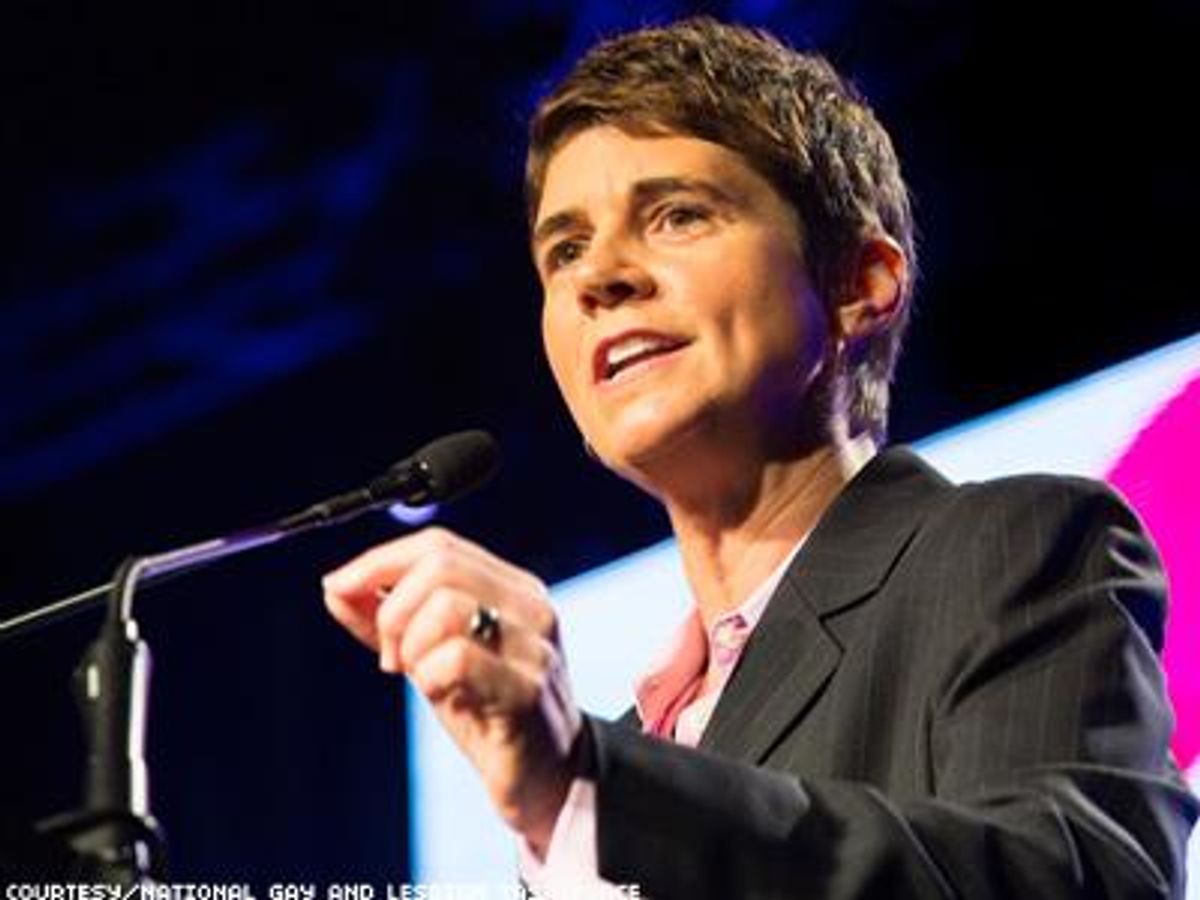All Rights reserved
By continuing to use our site, you agree to our Private Policy and Terms of Use.
The morning the sun rose after the Supreme Court's Hobby Lobby ruling, we all woke up in a changed and intensified landscape of religious exemptions being used as an excuse to discriminate. The reality is that while politics is about compromise, some compromises are too great.
After much soul searching, the National Gay and Lesbian Task Force Action Fund has decided to withdraw its support for the current version of the Employment Non-Discrimination Act. As one of the lead advocates on this bill for 20 years, we do not take this move lightly but we do take it unequivocally -- we now oppose this version of ENDA because of its too-broad religious exemption.
Frankly, it is becoming harder and harder for me, for us, to tolerate our own moral and political inconsistencies by protesting the Hobby Lobby decision, then advocating for the current ENDA with its broad religious exemption, and then insisting that the president not include a broad exemption in the upcoming executive order protecting LGBT people working for federal contractors. How can we demand that a woman have coverage for reproductive healthcare at a company but support a bill that allows a lesbian cafeteria worker in the religiously affiliated hospital next door to be fired from her job?
In the last year alone, we have seen a wave of attempted and successful efforts at imposing religious exemptions on issues of reproductive health and LGBT equality on the local, state, and federal level. And it is crystal clear in the week following the Supreme Court's Hobby Lobby decision that the momentum is building on religious exemptions. Not 48 hours after the decision, Pastor Rick Warren joined other faith leaders in a letter to the president asking that he include a broad religious exemption in the contractor executive order. We cannot be complicit in writing such exemptions into federal law.
There is a better alternative: federal nondiscrimination legislation that contains a reasonable religious accommodation. LGBT people should have the same protections as those contained in Title VII of the 1964 Civil Rights Act. Legal equality is legal equality.
The campaign to create broad religious exemptions for employment protections repeats a pattern we've seen before in methodically undermining voting rights, women's access to reproductive health, and affirmative action. It is time for fair-minded people to block this momentum rather than help speed it into law. The truth is that those who seek to deny us full equality are succeeding in creating a quasi-moral, completely legal mechanism for doing something that millions of people of faith think is completely immoral and should be illegal: discrimination.
We are also deeply concerned that ENDA's broad religious exemption will serve as a template -- a new floor, not a ceiling -- not only for our work on LGBT nondiscrimination across the country, but also for other issues that affect our community deeply including marriage, access to HIV/AIDS treatment and prevention, and access to other reproductive health services. We are well aware that there are many states with zero protections for LGBT people. This weighs on us heavily, as does the fact that many LGBT people would be at risk of having no protections with this broad religious exemption. We will all need to double down to move forward on nondiscrimination laws in the states where none exist as we push for federal protections with a fair and equal religious accommodation.
Our decision to change our position on ENDA comes also from a recognition of just how far we have come as LGBT people and as a country in the last 20 years. When ENDA was first introduced in 1994, had ENDA passed -- even with a broad religious exemption -- we may very well have been celebrating in the streets. Passing any ENDA in the 1990s would have served as a catalyst for the movement. After all, there were zero LGBT-specific supportive federal laws; only nine states had sexual orientation nondiscrimination laws, only one of which included gender identity; and "don't ask, don't tell" and the Defense of Marriage Act cast a shadow on our potential freedom. Making compromises on ENDA over the years was about seeking out even the most rudimentary protections. Our efforts were not misdirected given the time. Today, however, is not 1994, and we have since had many catalysts for progress.
There is nothing inherently inconsistent between religion and living our lives freely as LGBT people. We do not need to settle for a law that has a loophole this large, that will embolden our opposition and that has the potential to curb our progress on other federal, state, and local laws protecting LGBT people and their families.
As a matter of dignity, we must stand tall for what we have fought for, what we have achieved, what we need, and what we deserve. Nothing more, nothing less.
REA CAREY is the executive director of the National Gay and Lesbian Task Force Action Fund.


















































































